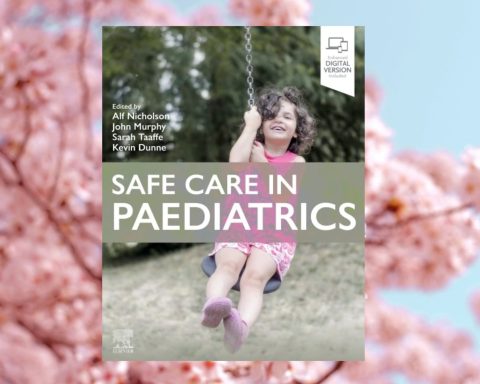
Compassion is central to the delivery of health and social care.
Dame Clare Marx stood down in July as Chair of the General Medical Council following her diagnosis with pancreatic cancer. Few who read her valedictory message–doctors, patients, public, the media– will have been unmoved by it.1 It is an honest and courageous reflection on her career and on what we need to focus on for the future of our profession. As well as clinical competence, she makes clear, connection with patients and kindness and compassion are central to being a doctor. She also reflects on her gratitude for the kindness and support of colleagues throughout her career as a pioneering female surgeon and leader.
In 2019, while Dame Clare was Chair, the GMC published ‘Caring for doctors, caring for patients’ an independent review led by Professor Michael West and Dame Denise Coia.2 This looked ‘into the factors that impact on the mental health and wellbeing of medical students and doctors.’
The review was firmly based on evidence which showed clearly that staff wellbeing improves productivity, quality of care, patient safety and satisfaction as well as financial performance and sustainability (ref 2, p 20). It has a strong focus on the workplace environment, the source of both stressors and solutions. The high rate of vacancies in the NHS (100,000 in NHS England alone), low levels of job satisfaction among GPs and hospital doctors, and chronic work overload are evident and constitute causes of concern for patients, whose quality of care depends on staff health and wellbeing.
The main recommendations are:
Increasing autonomy and control for doctors in their workplaces, measures to develop belonging, developing and supporting multidisciplinary team working and nurturing and developing compassionate patient care and staff wellbeing, and competence, addressing the problems of excessive work demands that exceed the capacity of doctors to deliver high quality safe care.
Central to the delivery of these is compassionate and inclusive leadership within the NHS
Sadly Dame Denise Coia, co-author of the report, died in 2020.3 Her great abilities, commitment, kindness and sense of fun are missed by many.
Michael West has now written a textbook on Compassionate Leadership, with the subtitle ‘sustaining wisdom, humanity and presence in health and social care.’4 It is essentially a detailed and practical ‘how to’ book on the delivery of compassionate leadership.
Caring with science (“Cum scientia caritas”) is of course the motto of our college, and throughout my career I have been impressed and often moved by the compassion shown to patients by my role models, my colleagues – many nurses as well as doctors, trainees and medical students. The large body of quantitative work on empathy in the consultation carried out by Stewart Mercer and colleagues5 over many years consolidated that and has set out the scientific basis for the importance of empathy as central to the doctor patient relationship. Empathy is a component of compassion, which is a central and universal human value.
Compassion is attentiveness to the suffering of ourselves and others, with the wisdom and steps taken to relieve it.
Thus it is action orientated with a motivation to address distress, suffering or their causes.
A more detailed definition highlights the four elements of compassion (ref 4, p3):
Attending: being present and listening
Understanding: requiring connection, dialogue and judgement
Empathising: feeling the difficulties or distress of the other or others
Helping: taking wise action to address the pain, distress or suffering of the other.
When I was Chair of RCGP Scotland I organised a conference with Dr Carey Lunan on compassion and self compassion for doctors in Edinburgh in 2013. At that time, I looked through the GMC website and found, using a word search, that the only mentions of the word were in the curriculum documents of RCGP and the Royal College of Anaesthetists. There was no mention of compassion on the GMC website itself. So our profession and our regulator have come a very long way in a short time in acknowledging the centrality of both compassion and self compassion. Why has the zeitgeist changed so quickly? Perhaps, as the American poet Theodore Reothke said ‘In a dark time, the eye begins to see.’
In the USA, even in the hard-nosed world of business, compassion is part of the new language of culture and leadership. ‘Awakening compassion at work’ by Worline and Dutton, was published in 2017 and is aimed at corporations and businesses.7 The evidence suggests that more potential, including improving the bottom line, can be realised in a business if care and compassion are at the heart of the leadership culture.
Compassionomics,8 a lively summary of the evidence that compassion makes a difference in health care is cited in West’s book, and has been praised by Don Berwick, President Emeritus of the Institute for Healthcare Improvement, thus:
“Compassionomics provides the evidence that one simple tool, compassion, can affect not only the outcomes for our patients, but also the financial health of our organizations and the well-being of our providers.”
Note the emphasis on financial as well as patient and provider outcomes. So is compassion something instrumental, a transactional driver to utilitarian positive results, or is it a virtue or value, intrinsic to being human? Or does this distinction matter?
Even in macroeconomics, Mark Carney, ex-Governor of the Bank of England, writes in his 2021 book Value(s),9 the ‘values of economic dynamism and efficiency have been joined by those of solidarity, fairness, responsibility and compassion.’
So what does Michael West’s book add to the growing literature on compassion and leadership? Most importantly, he addresses the common misconception that a compassionate culture is soft and undemanding and cannot address performance issues and toxic behaviours. The evidence he cites, with examples, is quite the reverse. Other chapters address the pre-COVID crisis in health and social care, the evidence for compassion, creating compassionate cultures, teamwork, inclusivity, QI and innovation and self-compassion.
There are many local examples of compassionate work and culture creation across all four nations and internationally, including general practice. It is a very practical book. Each chapter has resources including questions for discussion by teams, questionnaires and inventories and useful websites. It is written with compassion and indeed with passion, but as one would expect from an academic organisational psychologist, evidence is central to every statement and chapter.
Compassion is often seen as an abstract noun among other values on the websites of many health and social care organisations including general practices. This book can be used as a practical handbook to help us embody, organise for and deliver compassionate care for and with our patients and clients, our colleagues and, just as important, ourselves.
Featured book
West M. Compassionate Leadership; sustaining wisdom, humanity and presence in health and social care. The Swirling Leaf Press. London, 2021.
References
- General Medical Council. A message from Dame Clare Marx–Stepping down as Chair of the GMC. https://www.gmc-uk.org/news/news-archive/a-message-from-dame-clare-marx—stepping-down-as-chair-of-the-gmc (accessed 3rd August 2021.)
- General Medical Council. Caring for doctors, caring for patients. https://www.gmc-uk.org/-/media/documents/caring-for-doctors-caring-for-patients_pdf-80706341.pdf (accessed 3rd August 2021.)
- Obituary: Dame Denise Coia. https://www.rcpsych.ac.uk/members/obituaries (accessed 3rd August 2021.)
- West M. Compassionate Leadership; sustaining wisdom, humanity and presence in health and social care. The Swirling Leaf Press. London, 2021.
- Bikker A, Cotton P, Mercer S. Embracing empathy: A Universal Approach to Person-centred, empathic healthcare encounters. Radcliffe Press, London, 2014.
- Balaam, M; Harris, H (2021) Burnout Mistreatment and Stress (Chapter 44) A Practical Guide for Medical Teachers”6th edition Elsevier (UK)
- Worline M, Dutton J. Awakening compassion at work: the quiet power that elevates people and organisations. Berrett-Keohler Publishers, 2017. https://awakeningcompassionatwork.com (accessed 3rd August 2021.)
- Trzeciak S, Mazzarelli A. Compassionomics: the revolutionary scientific evidence that caring makes a difference. Studer Grouo, Florida, USA, 2019.
- Carney M. Value(s). Building a better world for all. William Collins, London, 2021.
Featured photo by Joshua Hibbert on Unsplash









Since publishing ‘Compassionate Leadership in Health and Social Care’ by Professor Michael A. West in July 2021, the book has been featured in lots of journals and Michael has been invited to give various talks and participate in some podcasts too. We have collated a little list of all the Little-Big book’s outings in various articles and of Michael’s talks below.
Top 5 books on Compassionate Leadership
Top Five Compassionate Leadership Books of 2021 — Center for Compassionate Leadership
Book reviews/mentions
BMJ (mention): Rammya Mathew: Building compassionate and joyful workplaces (bmj.com)
BJGP (review): Book review: Compassionate Leadership – BJGP Life
The Psychologist (article): Collective and compassionate leadership | The Psychologist (bps.org.uk)
National Guardian (freedom to speak uk): National Guardian’s Office
NHS Employers (article): Teamworking, psychological safety and compassionate leadership | NHS Employers
Health Manager: Tools & Techniques for Compassionate Leadership | Health Manager
Twitterchats
BMJ Leader/FMLM Bookchat on twitter: #BMJLeaderchat – Twitter Search / Twitter
Book Blogs
Sue Robins (review): A Commentary on the Compassionate Leadership Book (suerobins.com)
Videos/Podcasts
HEIW article and podcast: Articles – Gwella HEIW Leadership Portal for Wales
NHS Race Health Observatory panel with Michael: Videos Archives – NHS – Race and Health ObservatoryNHS – Race and Health Observatory (nhsrho.org)
BMJ podcast with Bob Klaber: The BMJ Podcast: Life Support – Being a compassionate colleague on Apple PodcastsPodcast with Tom Rogers: The Morning Break with Tom Rogers 09-09-21 – Teachers Talk Radio | Podcast on Spotify
Podcast with Chris Whitehead: The Compassionate Leadership Interview | Podcast | Sheffield (compassionate-leadership.co.uk)
Education
The King’s Fund/Future Learn – free course on Compassionate Leadership online: Leading with Kindness and Compassion – Health & Social Care Course – FutureLearn